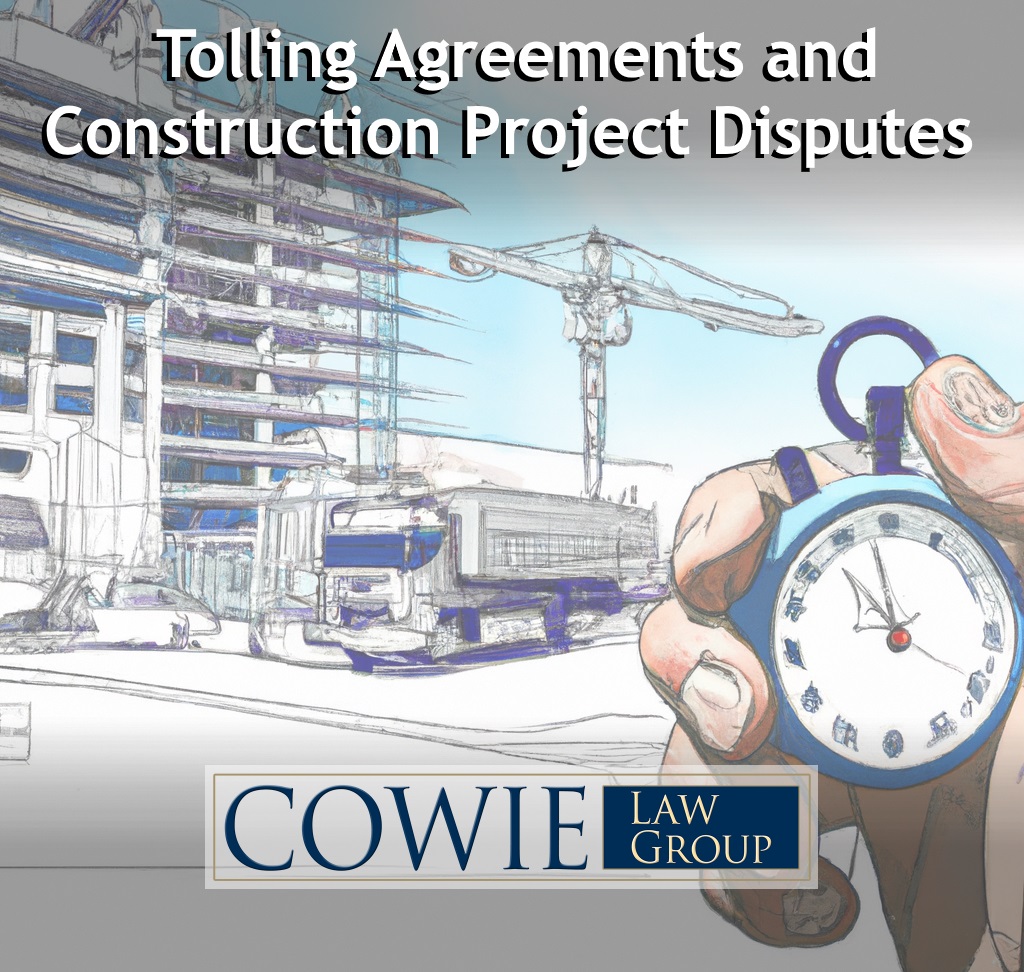
Introduction:
As construction projects in Washington DC and Maryland become increasingly complex, the potential for disputes arising from construction defects, delays, and payment issues is ever-present. For owners, developers, general contractors, subcontractors, and design professionals, the need to protect their legal claims while seeking resolution is paramount. Washington DC and Maryland construction law attorneys can play a crucial role in helping the parties navigate these complex issues. In this article, we will explore the concept of tolling agreements and how they can serve as a powerful tool in preserving legal claims while parties seek to resolve construction disputes during the dispute resolution process.
Understanding Tolling Agreements:
A tolling agreement is a legal contract entered into between parties involved in a legal dispute that suspends or “tolls” the running of the applicable statute of limitations or other time limitations for filing legal claims. In construction projects, tolling agreements allow parties involved in a dispute over a construction project to extend the deadline for filing a legal claim, giving them more time to negotiate and resolve the dispute before resorting to litigation or arbitration.
In some cases, a party to a construction contract may be up against a deadline to file a lawsuit, even though the parties are involved in negotiations. Tolling agreements allowing them to continue negotiating, without having to incur the expense of litigation.
Tolling agreements are private contracts that parties enter before the statute of limitations expires. Courts will enforce these contracts to extend the time for filing suit if a lawsuit is ever filed. However, tolling agreement only suspend the statute of limitations as to claims against parties to the tolling agreement.
Understanding Statute of Limitations and Construction Projects:
The statute of limitations refers to the period of time within which a legal claim must be brought in a court of law, or it is forever barred. Generally, the length of time for the statute of limitations is established by applicable state or federal statutes.
Applying the statute of limitations to a given case can be a complex, filled with legal exceptions and required factual determinations. Moreover, there may be several legal claims involved each having different statute of limitation’s periods, and some statutory claims have time periods that cannot be altered by private tolling agreements. For example, in Washington DC and Maryland there is a three-year statute of limitations on negligent construction and breach of construction contract claims arising out of defective construction or design, or failure to complete the contracted work. See Code of the District of Columbia § 12-301 and in Maryland Courts & Judicial Proceedings Article § 5-101. The time for bringing these claims can be extended by a tolling agreement.
On the other hand, statutory payment claims (claims against the property or a source of funds), such as mechanics lien claim or a Miller Act payment bond claim, must be brought within much shorter period specified in the statute, which arguably cannot be extended by a private tolling agreement. This is because some courts hold that the prescribed deadline for filing these statutory payment claims is not an “ordinary” statute of limitations, but rather a “jurisdictional element of the cause of action” or “condition precedent” that must be met to maintain a viable mechanics lien or Miller Act claim. However, as an alternative to a tolling agreement, these type statutory payment claims, if applicable, can be stayed with court permission, affording the parties an opportunity to resolve the payment claim.
Construction Contracts that shorten the Statute of Limitations:
It is important to understand that the statute of limitation may be shortened by construction contract documents. There may be a clause buried in a contract that shortens the statute of limitations on future claims that may arise out of the construction project. Thus, it is important to have a Washington, D.C. or Maryland construction attorney review construction related contracts both prior to entering them, and immediately after a construction project dispute arises.
Preserving Legal Claims for Construction Defects, Delays and Payment Disputes
Construction defects can range from design flaws to faulty workmanship or materials, potentially resulting in substantial damages. Delays are a common issue in construction projects and can lead to significant financial losses. Payment disputes can create severe financial strain on contractors and subcontractors. In such cases, a tolling agreement might make legal sense, and be the answer to reaching a resolution without the expense of litigation by allowing the parties to thoroughly investigate and evaluate the claims, engage in negotiations, and explore potential resolutions while ensuring their rights are protected. Aggrieved parties to a construction project dispute should consult with one of our Washington, DC or Maryland construction law attorneys to discuss their options and determine whether a tolling agreement would be appropriate.
Benefits of Tolling Agreements:
By utilizing tolling agreements, parties involved in construction project disputes can enjoy several key benefits:
- Preservation of Legal Rights: Tolling agreements provide parties with extended timeframes to resolve disputes, preserving their right to seek legal remedies if needed.
- Enhanced Negotiation Opportunities: Parties can engage in negotiations or alternative dispute resolution methods without the pressure of an impending statute of limitations expiration.
- Cost and Time Savings: Tolling agreements can lead to cost and time savings by encouraging parties to seek resolution outside of the courtroom.
- Preservation of Professional Relationships: By utilizing tolling agreements, parties can maintain a working relationship throughout the dispute resolution process, mitigating the potential strain on future collaborations.
Conclusion:
Tolling agreements can play a crucial role in construction law, enabling owners, developers, general contractors, subcontractors, and design professionals to preserve their legal claims in Washington, D.C. and Maryland construction projects. By temporarily suspending the statute of limitations, parties gain valuable time to explore options for resolution, negotiate settlements, and, if necessary, pursue litigation. Our Washington, DC and Maryland construction law attorney attorneys are committed to providing our clients with the expertise and support they need to protect their interests and successfully navigate the legal aspects of construction disputes. Contact us today to discuss your legal needs and preserve your rights in construction projects.
.

Washington DC and Maryland Construction Law Attorneys
410-327-3800 | 202-670-6289 | 301-830-8315





